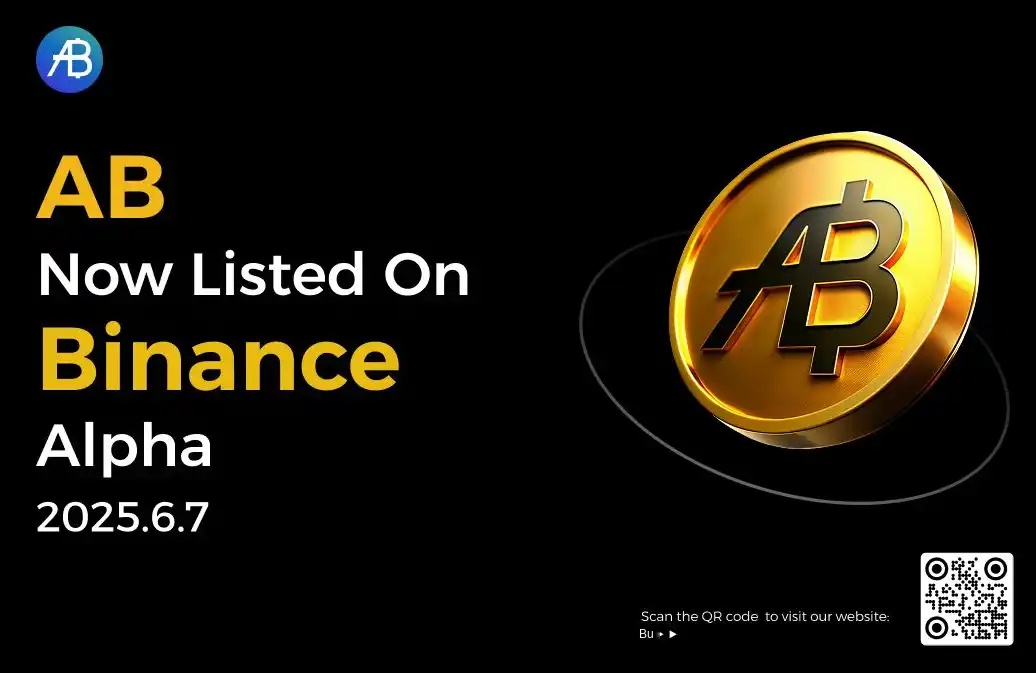Singapore's Cryptocurrency New Rules Explained: Why So Strict? Who Will Be Affected? Will It Trigger a Mass Exodus?
Original Article Title: "Deciphering Singapore's Cryptocurrency New Regulations: Why So Strict? Who Will Be Evicted? Will it Trigger a Mass Exodus?"
Original Source: Wu Shuo Blockchain
Editor's Note: This article is for general informational purposes only and does not constitute legal advice, investment advice, or any other professional advice. Before taking any action based on this material, users should conduct their own independent review and confirmation or consult a qualified attorney.
1. Introduction
On June 30, 2025, the Monetary Authority of Singapore (MAS) officially implemented the new Digital Token Service Provider (DTSP) regulations, marking the formal establishment of the cryptocurrency regulatory system proposed in 2022 after three years of brewing. The enforcement of these new regulations has caused some panic among community practitioners, as this measure not only impacts Web3 projects operating locally in Singapore, but is also seen as a key event that may reshape the entire Asian cryptocurrency industry landscape. Numerous unlicensed entities may be phased out of Singapore, while a few licensed entities such as Coinbase, OKX, HashKey, among others, will receive more benefits. Cities like Hong Kong, Dubai, Tokyo, Kuala Lumpur, and Bangkok will accommodate these displaced individuals.
2. Policy Background: Lack of Sufficient Attention to the "Three-Year Preparation Period"
The regulatory changes in Singapore's cryptocurrency industry did not happen overnight but were the result of several years of planning. While the new regulations are widely seen as "cliff-edge regulation," MAS actually included digital payment tokens (DPT, i.e., cryptocurrencies) under regulation through the Payment Services Act as early as 2020, requiring businesses providing crypto exchange services locally to apply for a license. Subsequently, MAS realized there was still regulatory arbitrage: some crypto companies established a presence in Singapore but only served overseas clients to circumvent local licensing requirements. To close this loophole and comply with the Financial Action Task Force (FATF) standards, Singapore passed the Financial Services and Market Act (FSMA) in April 2022, which specifically introduced the licensing regime for Digital Token Service Providers (DTSPs) in Part 9. Following the passage of the law, MAS did not immediately enforce it strictly but provided ample buffer time, planning to officially implement these new regulations in 2025. MAS had made it clear in the guidelines that there would be no transitional period.

In other words, from the enactment of the law to its effectiveness, Singapore gave the industry nearly a three-year adjustment period. Therefore, the recent announcement of the new regulations by MAS is not a "cliff-edge" sudden attack but a regulatory path set years ago. However, when MAS reiterated the hard deadline of June 30 in its final regulatory response document released on May 30, 2025, with no buffer period, it still shook the Asian crypto community. Some practitioners had hoped for leniency in regulation, but MAS proved to have a firm execution attitude, treating the past few years as a window for industry self-adjustment. Overall, Singapore's DTSP licensing regime went through a long period of brewing, public consultations (such as the late 2024 consultation report), before finally being implemented in 2025. It was not a sudden shift but was formally enacted in 2022 after multiple rounds of feedback, and ultimately set to be formally implemented in 2025.

However, due to the lack of attention from the Chinese community to policy dynamics, most practitioners did not feel the regulatory pressure until the eve of implementation, leading to a panic-driven interpretation and the "Web3 Great Retreat" narrative.
III. Key Term Interpretation
1. DTSP Definition
DTSP stands for Digital Token Service Provider, according to the definition in Section 137 of the FSM Act and the content of Document 3.10, DTSP includes two types of entities:
1) Individuals or companies operating in Singapore who own an "operating place" and engage in business;
2) Singapore-registered companies that provide digital token services to overseas customers, regardless of whether they operate in Singapore or overseas.

2. Scope of Application "In or From Singapore"
According to the above definition, whether an individual or a company, as long as the entity is engaged in digital token-related business in Singapore, or a company registered in Singapore provides encryption services to overseas, it falls under the regulatory scope of DTSP. It is worth noting that customer origin is no longer important here: whether the service is for locals or overseas customers, as long as the operating entity is associated with Singapore, it must be licensed; otherwise, it is considered illegal operation. For example:
· Core development/operation team is located in Singapore;
· Servers or hosting systems are in Singapore;
· Marketing activities are clearly aimed at Singaporean customers;
· Receiving funds from Singapore users;
Therefore, providing DTSP services in or from Singapore requires a license.
3. Broad Definition of "Place of Business"
MAS provides a very broad definition of "Place of business," which is almost equivalent to any location where business is conducted. It is explicitly stated that a "Place of business" can be any location used for business activities, including temporary or mobile locations such as roadside stalls. As long as a person is in Singapore, whether in a company office, a shared workspace, or on their own sofa at home, if they are engaged in digital token-related business (without a license), it is considered to have a place of business in Singapore and constitutes illegal operation. This interpretation dispels the illusion of some people — in the past, many practitioners believed that working remotely from home for overseas projects did not count as a "Place of business," but MAS clearly does not endorse this evasion method.
However, MAS also provides some flexibility: if the individual is a formal employee of an overseas company, working remotely from home for the company, then the responsibility mainly lies with the employer, who must be licensed, and the individual does not need to apply separately. The key to this provision lies in how "employee" status is defined: Does the founder of a startup team count as an employee? What about equity-holding advisors? These gray areas are currently unclear and may require MAS to further explain through FAQs in the future. Nonetheless, the regulatory intent is very clear — to eliminate activities that use the guise of "individual in Singapore, serving overseas" to circumvent regulation. Even if working from home, this cannot be an excuse to evade regulation.

4. Coverage of Digital Token Services
In simple terms, anything related to "trading" is not allowed. Under the DTSP license regulation, the scope of "Covered Digital Token Services" is extremely broad, covering almost every aspect of crypto business. As stated in the FSMA Schedule, the related activities span up to ten categories, mainly including:
1) Issuance or Arranging Issuance of Digital Tokens
Any activity involving the creation or issuance of digital tokens for others, including IDOs, Launchpads, Token Generation Events (TGEs), etc. Any service involving the offer or sale of digital tokens is within the regulatory purview. This not only refers to project teams directly issuing tokens to the public (similar to ICOs) but also includes behaviors that induce or encourage others to buy/sell tokens. Simply put, whether it's the issuer or an intermediary, as long as they are promoting tokens or raising funds, a license is required.
2) Digital Token Custody Services
Holding or controlling customers' digital tokens, including cold and hot wallet services. Whether providing custody vaults, custodial wallets, or carrying out token-related instructions on behalf of customers (such as helping customers operate their token accounts, executing trades), as long as the service provider has control over the tokens or their control tools, it falls under regulated activities. This means providing customers with interfaces or systems for secure access to their assets is also included in regulation.
3) Brokerage / Matching / Exchange Services
4) Operating centralized or decentralized order books, trade matching services (including OTC, DEX Aggregator).
This covers platforms for buying, selling, and exchanging digital tokens, as well as brokerage services that match token trades for others, such as providing a trading platform interface (UI/UX) to assist both buyers and sellers in completing transactions.
4) Transfer Services
Any service that assists clients in transferring tokens from one wallet or account to another (i.e., any service acting as an intermediary in a transaction or facilitating cross-chain bridge transfers also needs to document). This includes payment gateways, bridging protocols, and wallet-provided "escrow transfer" functionality.
5) Validation / Governance Participation
Representing clients in participating in node validation (e.g., staking on behalf of clients), running validator nodes, or engaging in on-chain governance voting. This may also involve activities where rewards or earnings are collected from staking or governance.
6) Technology Enabling Custody Support
Providing the infrastructure or technical support required for custody services (such as MPC wallet service providers, key custody, custody API developers). Although not directly controlling assets, technology plays a critical role in asset control processes and is also included.
The scope above indicates that the DTSP license covers almost all services in the digital token lifecycle, from issuance, trading, and transfers, to custody and operations, all of which are subject to regulation.
4. What Business Activities Do Not Require a License?
1. Pure Advisory / Consultancy
For example: project design, tokenomics advisory, legal structure advice, product design guidance, etc. As long as you do not engage in actual asset custody, issuing tokens on behalf of others, or executing transactions, you will not be considered a DTSP.
2. Marketing / Publicity Services
This includes community management, advertising, brand design, etc. Even if you help a Web3 project with marketing activities in Singapore, as long as you are not involved in asset circulation, trade matching, or token management, you are generally not subject to regulation; however, if you directly arrange token sales/distribution or transfers on behalf of clients, you may trigger regulatory obligations.
5. Severity Analysis: Why Did MAS Shift from Leniency to Strictness
Web3 is not a lawless land, and businesses involving transactions/fund transfers are subject to regulation everywhere. The only difference is that Singapore's policy is more "forward-looking," and the strictness of the new regulations lies in unwavering enforcement and stringent entry criteria. This is driven by both external events and reflects MAS's consistent regulatory philosophy:
1. Singapore's "Everything Requires a License" Rule of Law Culture
Singapore has a detailed licensing regime for any commercial activity: street vendors must undergo regular training and obtain a hawker license; even cafes wishing to play background music need to apply for a public performance license; and if a hotel wants to operate a swimming pool after opening, it also needs to obtain additional permits. Singapore's "crypto-friendly" environment does not mean zero regulation for the industry; therefore, the crypto industry similarly follows a "certification first, deployment later, periodic review" approach, essentially based on a "registration system" rather than a laissez-faire-friendly one. In Singapore, no matter what you do, it needs to be regulated.
2. Investor and Fund Security as a "National Policy-Level" Foundation
The Singapore government is a paternalistic one, placing great emphasis on citizens' welfare, especially fund management. For example, to ensure retirees have enough funds for their later years, the Singapore government even restricts the withdrawal of retirement savings (CPF) until the age of 55. At the same time, MAS places a strong emphasis on investor protection in the crypto licensing process, highlighting AML/KYC, capital requirements, and insurance requirements to ensure accountability and compensation in case of incidents. Being able to promptly identify responsible parties, with corresponding collateral and insurance, is crucial.
3. "福建帮" $3 Billion Money Laundering Case Triggered Regulatory Red Lines
The primary reason for MAS's tightening measures this time is to prevent cross-border financial crime and money laundering. Digital token services often operate cross-border through the internet, with strong anonymity and fast fund movement, making them more susceptible to exploitation by criminals for money laundering or funding terrorist activities. In recent years, Singapore has experienced some lessons firsthand, with the largest impact being the exposure of the $3 billion cross-border money laundering case by the "福建帮" in 2023. This case involved 10 foreign nationals from regions such as Fujian, China, who extensively laundered money through opening companies and bank accounts in Singapore, involving a staggering amount of $3 billion SGD. This incident was the largest money laundering case in Singapore's history, with its heinous nature even having some public opinion impact on the recent Singapore General Election.
MAS is not afraid of fraudulent platforms damaging Singapore's reputation. The Singapore government has extensive experience and means of dealing with such incidents. Through Singapore's IAL list (https://mas.gov.sg/investor-alert-list), it can be observed that what the Singapore government truly fears is the inflow or outflow of illicit funds causing a diplomatic crisis and its position as a financial hub in Asia.
4. Licensing Rigor Comes from Audit Practice's Disenchantment
MAS's toughness is also reflected in its rigorous admission standards. According to the guidelines, MAS stated that it would only "consider issuing a DTSP license in very few cases" and provided almost harsh approval conditions:
1) Applicants must prove the economic rationale of their business model and provide sufficient reasons to operate in Singapore but not serve the local market (in other words, they must convince MAS why they only do business overseas).
2) Applicants must reassure MAS that their operating model will not raise regulatory concerns, and they have obtained regulatory licenses or are under regulation in all foreign jurisdictions where they provide services, complying with international regulatory standards (such as the Financial Stability Board, IOSCO, and FATF standards). In other words, the company must be legally compliant in each customer's country, which is almost an impossible task for many new projects.
3) MAS also emphasizes that the applicant's organizational structure and compliance capabilities should not cause regulatory unease, such as having sound corporate governance, an adequate workforce, and financial resources to fulfill regulatory obligations.
Therefore, after the opening of applications in 2021, more than 500 institutions rushed for the license, but most qualifications were mediocre, with an approval rate of less than 10%; by the end of 2024, only 13 entities obtained the DPT major license, increasing the total number of license holders from 16 to 29. With MAS facing a shortage of regulatory manpower, approvals are becoming even stricter.

5. Web3 Has Not Brought "Sedimentary" Economic Benefits to Singapore
The crypto industry has surged into Singapore, but many projects have low registered capital, rent lavish offices without paying local taxes; funds do not stay in local banks but continuously consume, driving up housing prices, salaries, and the cost of car ownership, leading to a deteriorating social perception. Local voters are not convinced, and the government naturally has no interest in "thankless tasks."
Six, Industry Impact Assessment: Who Will Be Affected, Will Web3 See a "Great Retreat"?
1. Affected Groups:
Individual Professionals: such as independent developers, crypto project consultants, liquidity providers, miners, KOLs (Key Opinion Leaders), community managers, project founders, business developers, etc. In the past, these individuals did not need a license to engage in Web3 work in Singapore, but under the new regulations, everyone may be at risk. For example, independent developers writing smart contracts for overseas blockchain projects, consultants providing solutions for token issuance, KOLs writing token analyses – all these activities theoretically fall under "providing digital token services."
Unlicensed Entities: Such as cryptocurrency exchanges (both centralized CEX and decentralized DEX) that have not yet obtained a PSA license, DeFi project teams, NFT exchanges, cryptocurrency wallet providers, cross-border payment networks, and various blockchain startups. These entities, if they have personnel or company registration in Singapore but do not have any license, will be the first to face the risk of business interruption. Especially for some past projects rooted in Singapore and focused on overseas markets, if they do not meet the application criteria, it is equivalent to being given a "death row reprieve," as they will no longer be able to operate in Singapore. According to the new regulations, they must close related businesses no later than June 30, otherwise, it will be considered illegal operation.
2. Exempt Group:
Institutions that are licensed or exempted under PSA/SFA/FAA do not need to apply for the DTSP license under FSMA, but they need to fulfill FSMA's additional obligations.
Typical Example: Custodians: If already licensed/exempted under PSA, even when facing overseas clients, they are exempt from obtaining the DTSP license. However, they need to additionally comply with FSMA's regulations on technology, audits, and AML/CFT.
FSMA Additional Compliance Checklist:
1) Technology Risk Management (TRM): Architecture, backup, penetration testing, and third-party services must adhere to industry best practices.
2) Annual Independent Audit Report: Must cover financial + system control dimensions and be submitted within the stipulated timeframe.
3) Enhanced AML/CFT Requirements: Stricter requirements for KYC, transaction monitoring, and suspicious reporting obligations.
4) Reporting Significant Security Incidents Within 1 Hour: Immediate notification to MAS of data breaches, private key compromise, prolonged downtime, etc.
5) Prohibition of High-Value Cash Transactions: Cash payments of ≥ 20,000 Singapore dollars per transaction are completely prohibited.
Singapore has officially implemented the DTSP license regime, marking the end of the regulatory arbitrage era and entering a new phase. Amidst the global trend of increasing regulatory scrutiny, major jurisdictions are gradually addressing regulatory gaps in cryptocurrency activities, with Singapore being one of the more aggressive examples. The previously common practice of "establishing in Singapore and providing services overseas" has now been uniformly brought under regulation, undoubtedly sending a clear signal to the industry: the future development of Web3 must be based on legality and compliance. Attempting to consolidate the regulatory authority dispersed under PSA/SFA/FAA, eliminate the "gray runway," and shift the regulatory focus from "licensed or not" to "compliant or not." Stablecoin regulation is also being concurrently upgraded.
1) Single Currency Stablecoin (SCS): Independent Framework Implementation.
2) Other Stablecoins: Continued to be considered DPT, still under the jurisdiction of PSA; if used as the underlying asset of a derivative, may fall under SFA regulation.
The gray area outside of regulation is shrinking. Operating in compliance will become mainstream, and the era of exploiting jurisdictional differences is coming to an end. While from 2018 to 2021, Asian crypto entrepreneurs were keen on finding regulatory havens, post-2025, most of the surviving entities will be those willing to embrace regulation and have compliance capabilities. Major financial centers in the region are also racing to introduce clear regulatory frameworks. Rather than companies "escaping" from a place, they are now more focused on finding the regulatory environment that best suits their business.
Seven, Two Self-Check Questions for Operators
1. Am I already licensed or exempt within the PSA/SFA framework?
2. Have I provided any DT services to overseas clients?
If the answer to the first question is "yes," there is no need for a new license, but immediate compliance upgrades should be initiated.
If the answer to the first question is "no," then licensing must be obtained or operations must cease by June 30.
The regulatory screws of MAS will only tighten — Don't wait until the last day to act. Licensed entities should consider "compliance upgrades" as a normal engineering task; teams that are not yet licensed and lack a full set of compliance chips should decide early on whether to apply, merge, or exit. The tough measures taken this time, with no transitional period and a requirement for violators to immediately cease operations, are also signaling to the market: Singapore will not be a safe haven for unregulated crypto businesses. Even if it has been seen as "crypto-friendly" in recent years, it absolutely does not allow for exploitation. MAS's move shows that Singapore's crypto regulatory environment has significantly tightened, with many local companies either bearing high costs to obtain licenses or having to restructure their businesses and exit overseas markets. Rather than allow Singapore's international reputation and financial security to be eroded, the short-term cost of some business losses is acceptable.
Eight, Indirect Benefits for Surrounding Regions
This move by Singapore may indirectly benefit other regions, prompting a new division and migration in the Asian crypto landscape. As another crypto center in Asia, Hong Kong has vigorously promoted the legalization of virtual assets and the establishment of a regulatory framework in recent years. Just as Singapore tightens its regulations, Hong Kong is actively taking in the crypto businesses being squeezed out. Hong Kong Legislative Council member and National Committee of the Chinese People's Political Consultative Conference member Wu Jiezhuang tweeted that Singapore recently issued the "Guidelines on Licensing for Digital Token Service Providers," introducing new policies for companies, institutions, and individuals engaging in virtual assets. Since Hong Kong released the Virtual Asset Declaration in 2022, welcoming the industry to develop in Hong Kong, according to informal statistics, thousands of Web3 companies have landed in Hong Kong. Companies engaged in related industries in Singapore are welcome to relocate their headquarters and teams to Hong Kong and are willing to provide policy and landing assistance. The intention is to establish Hong Kong as a leading crypto hub in Asia.
Welcome to join the official BlockBeats community:
Telegram Subscription Group: https://t.me/theblockbeats
Telegram Discussion Group: https://t.me/BlockBeats_App
Official Twitter Account: https://twitter.com/BlockBeatsAsia
 Forum
Forum OPRR
OPRR Finance
Finance
 Specials
Specials
 On-chain Eco
On-chain Eco
 Entry
Entry
 Podcasts
Podcasts
 Data
Data

 Summarized by AI
Summarized by AI







